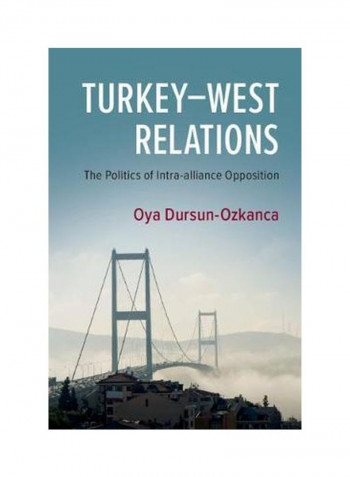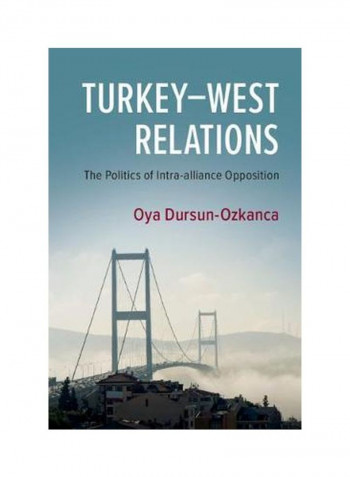Turkey-West Relations: The Politics Of Intra-Alliance Opposition Hardcover
Recommend
Sort by
Rating
Date
Specifications
Grade
New
Author 1
Oya Dursun-OEzkanca
Book Description
This timely book fills an important gap in the literature of international relations, providing a thorough, up-to-date, empirically supported, and theoretically grounded analysis of how and why Turkish foreign policy has changed in recent years vis-a-vis the West. Presenting one of the first balancing studies that employs elite interviews as data, Turkey-West Relations develops a framework of intra-alliance opposition, classifying the tools of statecraft into three categories - boundary testing, boundary challenging, and boundary breaking. Six case studies are examined regarding Turkish foreign policy over the past nine years, exploring an array of topics including Turkey's foreign policy in relation to various nations and organizations, the refugee crisis, defense procurement, energy policies, and more. Dursun-OEzkanca demonstrates how international, regional, issue-specific, and domestic factors may serve to explain Turkey's increasing boundary-breaking behavior. This book is crucial for anyone who seeks to understand the recent growing rifts between Turkey and the US, the EU, and NATO.
ISBN-10
1108488625
ISBN-13
9781108488624
Language
English
Publisher
Cambridge University Press
Publication Date
31 Jan 2020
Number of Pages
140
About the Author
Oya Dursun-OEzkanca is a Professor of Political Science at Elizabethtown College, Pennsylvania. She served as LSEE Visiting Fellow at the London School of Economics and Political Science and has received grants from Georgetown University, European Commission, and various other sources. She has had articles featured in Foreign Policy Analysis, Civil Wars, and elsewhere.
Editorial Review
This timely book examines how and why Turkey's relations with the West changed during recent years ... A significant contribution to the literature on alliances, this book is valuable for those interested in the policy implications for observers of transatlantic relations and Turkey's foreign and security policies.' B. A. Yesilada, Choice




